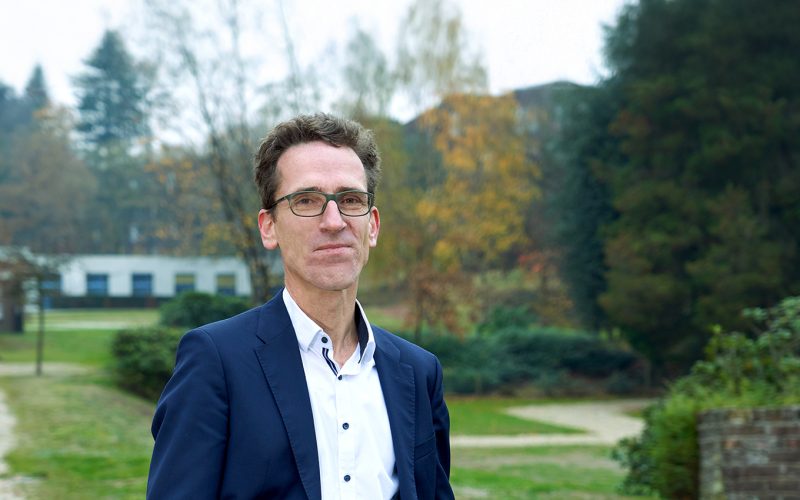Michel van den Heuvel has been appointed professor of pulmonary diseases at Utrecht University and UMC Utrecht, effective October 15, 2024. He will also lead the Department of Pulmonary Diseases at UMC Utrecht. In particular, he will work to facilitate research and care for patients with lung diseases originating in early life. Until recently, Van den Heuvel worked as professor of pulmonary oncology at Radboudumc and before that as a lung specialist at the Netherlands Cancer Institute/Antoni van Leeuwenhoek Hospital.
The purpose of this chair is to establish a robust research and patient care program within the Department of Pulmonary Diseases. Michel van den Heuvel emphasizes that within this program, his department will collaborate intensively with the pediatric lung diseases department of the Wilhelmina Children’s Hospital (part of the UMC Utrecht). The goal of this joint program will be to better facilitate research and care for patients with lung diseases originating in early life.
Many lung diseases are associated with chronic inflammation, and the type of inflammation often determines its clinical features. Lung diseases such as cystic fibrosis, interstitial lung disease and asthma often develop in childhood and persist throughout life, resulting in long-term morbidity. Some lung diseases deteriorate to the point that they lead to an increased risk of premature death sometimes even requiring a lung transplant. All of these lung diseases start with a subclinical phase (some already in childhood) that eventually progress to clinical disease. It is therefore important to unravel the causes and triggers for disease progression during aging. This is essential because prevention of deterioration is important in chronic inflammatory lung diseases. Future research, according to Van den Heuvel, should therefore focus on (1) unraveling disease causes and disease pathways, (2) developing early diagnostic and prognostic markers and tools, and (3) developing new drugs and treatments to improve clinical outcomes and quality of life for patients and their loved ones.
By choosing to take a broad perspective on chronic lung diseases originating in childhood, the chair is firmly embedded in UMC Utrecht’s Child Health strategic program, while lung diseases originating later in life will be studied within Infection & Immunity (I&I). This was chosen because many of these diseases are characterized by inflammation, which is central to the I&I strategic program. This has lead to the vision that advanced treatments of chronic inflammatory diseases should target both sterile inflammation and infection, and should encompass the whole palette of interventions, including lung transplants and the use of biologicals. New organ transplantation strategies such as ex vivo lung perfusion are expected to further benefit from collaboration with the Regenerative Medicine & Stem Cells and Circulatory Health programs. The program will therefore strongly encourage cross-fertilization and mutual benefits for four research programs at UMC Utrecht.
Michel van den Heuvel (1966, Afferden GLD) studied Medicine at the University of Amsterdam. In 1999 he received his PhD from the Free University of Amsterdam for research into the role of the dendritic cell in asthma. Subsequently, he specialized in the field of lung diseases. In 2005, he worked for a year as a pulmonologist at the Tygerberg Academic Hospital of Stellenbosch University (Cape Town, South Africa). In 2006, he joined the Netherlands Cancer Institute/Antoni van Leeuwenhoek Hospital and further specialized in thoracic oncology, focusing on chemoradiotherapy, immunotherapy and targeted therapy. At Radboudumc, Van den Heuvel became professor of pulmonary oncology and head of the Department of Pulmonary Diseases in 2017. In doing so, he focused on thoracic oncology with a special focus on immunotherapy and diagnostic innovations.
